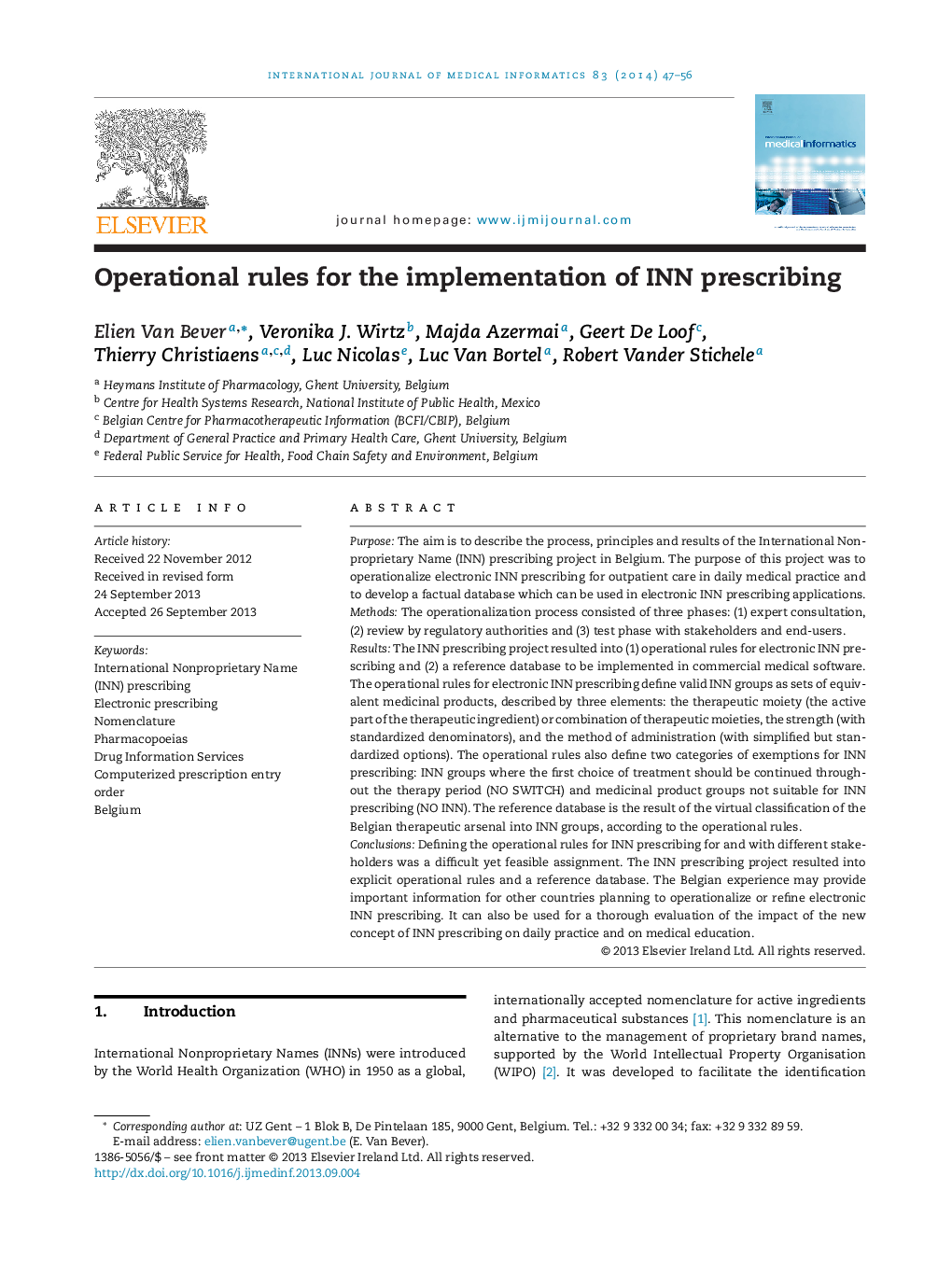| Article ID | Journal | Published Year | Pages | File Type |
|---|---|---|---|---|
| 516217 | International Journal of Medical Informatics | 2014 | 10 Pages |
•Process description to create operational rules for electronic INN prescribing.•Consistent operational rules to develop a reference database.•Insights into difficulties experienced, and remaining limitations.
PurposeThe aim is to describe the process, principles and results of the International Nonproprietary Name (INN) prescribing project in Belgium. The purpose of this project was to operationalize electronic INN prescribing for outpatient care in daily medical practice and to develop a factual database which can be used in electronic INN prescribing applications.MethodsThe operationalization process consisted of three phases: (1) expert consultation, (2) review by regulatory authorities and (3) test phase with stakeholders and end-users.ResultsThe INN prescribing project resulted into (1) operational rules for electronic INN prescribing and (2) a reference database to be implemented in commercial medical software. The operational rules for electronic INN prescribing define valid INN groups as sets of equivalent medicinal products, described by three elements: the therapeutic moiety (the active part of the therapeutic ingredient) or combination of therapeutic moieties, the strength (with standardized denominators), and the method of administration (with simplified but standardized options). The operational rules also define two categories of exemptions for INN prescribing: INN groups where the first choice of treatment should be continued throughout the therapy period (NO SWITCH) and medicinal product groups not suitable for INN prescribing (NO INN). The reference database is the result of the virtual classification of the Belgian therapeutic arsenal into INN groups, according to the operational rules.ConclusionsDefining the operational rules for INN prescribing for and with different stakeholders was a difficult yet feasible assignment. The INN prescribing project resulted into explicit operational rules and a reference database. The Belgian experience may provide important information for other countries planning to operationalize or refine electronic INN prescribing. It can also be used for a thorough evaluation of the impact of the new concept of INN prescribing on daily practice and on medical education.
